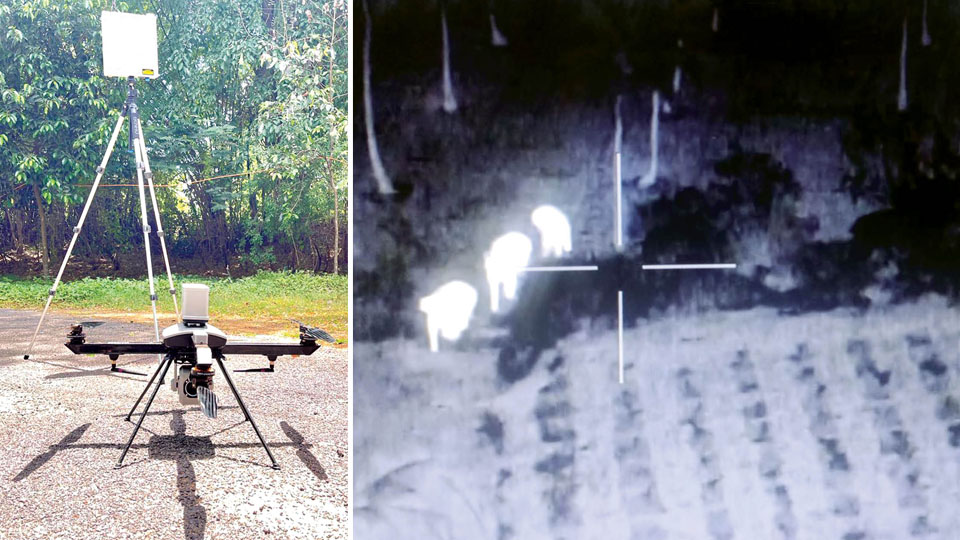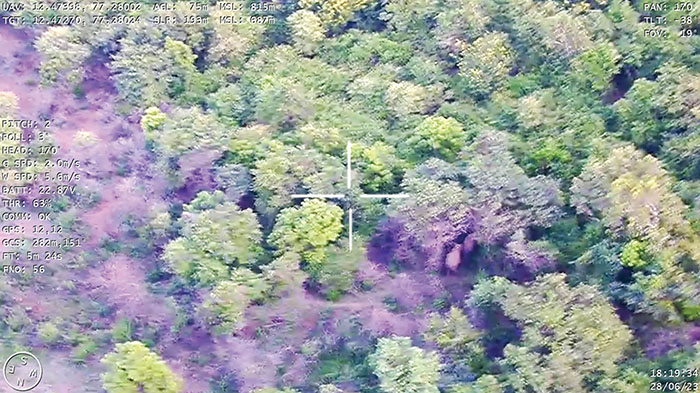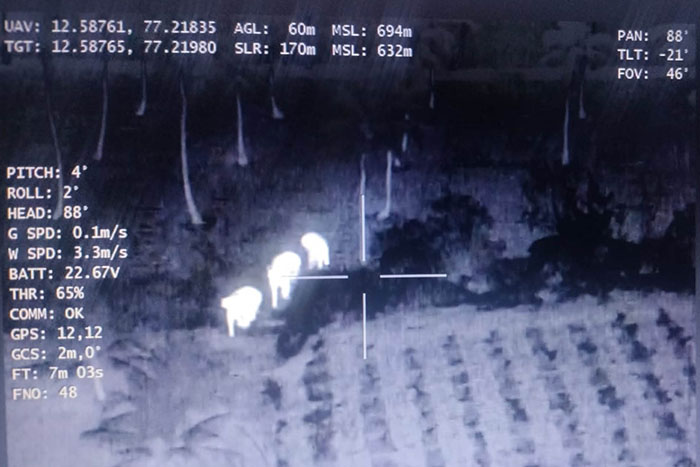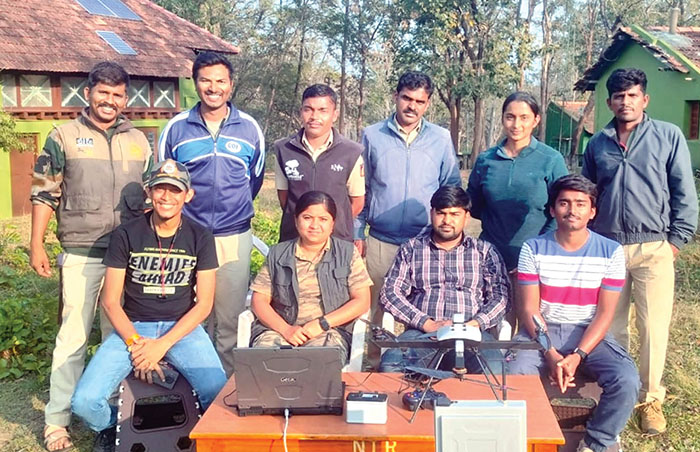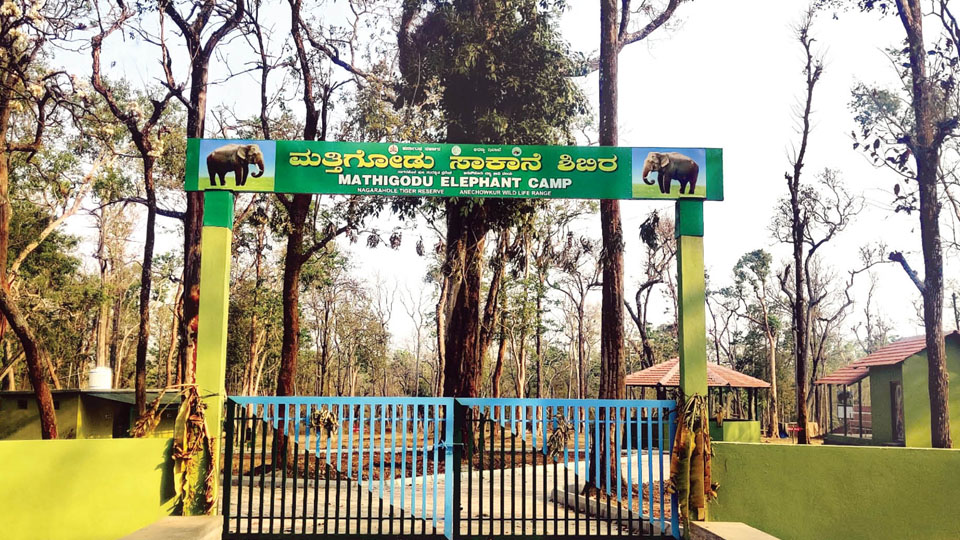
The Mathigodu Elephant Camp, situated a short distance away from the Anechowkur Gate at the entry of Kodagu district from Mysuru, has transformed into a tourist attraction and is set to welcome visitors soon. Among its notable residents are the Dasara Howdah Elephant and the fearless tusker, Abhimanyu.
Passersby along the Mysuru-Gonikoppal Road often halt their vehicles to have a glimpse these majestic creatures, albeit from a distance, as access to the camp was previously restricted for safety reasons and to maintain its exclusivity.
Capitalising on its popularity, the Forest Department has revamped the Mathigodu Elephant Camp into a tourist hub while prioritising safety measures. This camp falls within the precincts of the Nagarahole Tiger Reserve, adding to its allure. The Forest Department has spent Rs. 1 crore towards its development.
In an endeavour to raise awareness about human-wildlife conflicts, concerted efforts are underway to educate tourists visiting the Mathigodu Elephant Camp about wildlife conservation. This initiative seeks to foster a deeper understanding of the delicate balance between human settlements and wildlife habitats, with the hope of mitigating such conflicts in the future.
Despite being recognised as an ideal habitat for the State’s finest elephants by the Forest Department, the Mathigodu Elephant Camp hadn’t been optimised as a tourist destination. Meanwhile, the Dubare Elephant Camp near Kushalnagar experienced a steady influx of visitors.
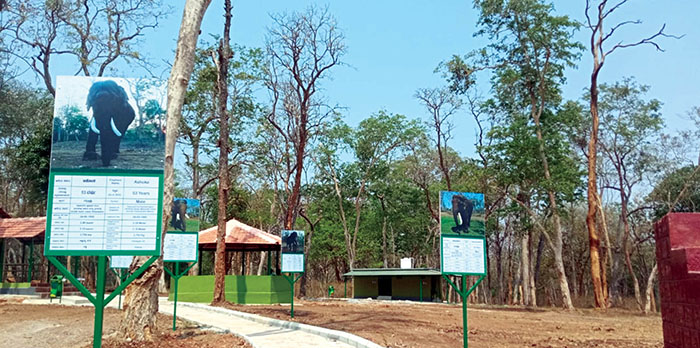
Located inside a jungle
As the camp is located inside a jungle, there is no provision to open shops and hotels here to convert it into a full-fledged commercial centre. However, basic amenities have been meticulously arranged to ensure the comfort and convenience of visitors, including designated parking areas, feeding zones for the elephants and recreational facilities.
To ensure the safety of both visitors and elephants, a railway track barrier gate has been erected, effectively preventing proximity interactions. Additionally, the establishment of two designated parking lots offers travellers ample space to unwind. A dedicated walking path has been constructed, facilitating easy access from the parking areas to the elephant viewing zone.
This setup not only caters to the demand for elephant viewing but also serves as an educational platform for visitors. The place offers comprehensive insights into elephant behaviour, the significance of elephant camps, monitoring protocols, profiles of the famed Dasara elephants, methods of elephant capture, the role of Kumki elephants, feeding practices, distinctions between Asian and African elephant species and other pertinent information concerning the rehabilitation of elephants.
An information centre has been inaugurated, serving as a repository of knowledge on elephants and forest conservation. Equipped with valuable resources, it aims to provide visitors with an immersive learning experience, fostering greater awareness and appreciation for wildlife conservation efforts.
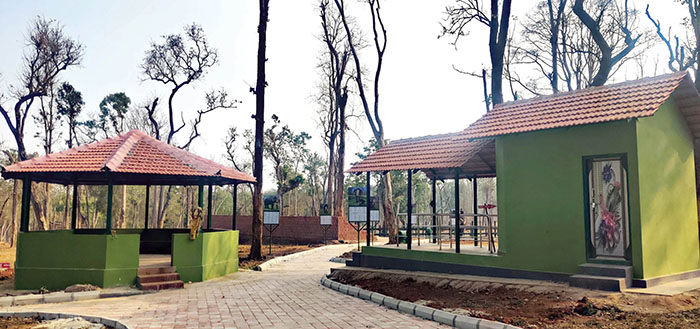
Home for 17 elephants
Currently, the Mathigodu Elephant Camp is home to a distinguished herd of 17 elephants. Among them are Abhimanyu, Bhima, Mahendra, Ravi, Somashekhar, Masti, Ashoka, Kyaata, Chamundeshwari, Bhuvaneshwari, Srikanta, Abhi (Zoo elephant), Rama, Ekalavya and two forest elephants.
Under the leadership of Range Forest Officer (RFO) D. Devaraj, the well-being and welfare of these magnificent creatures are diligently overseen by a team of DRFOs, dedicated staff members and experienced mahouts and kavadis.
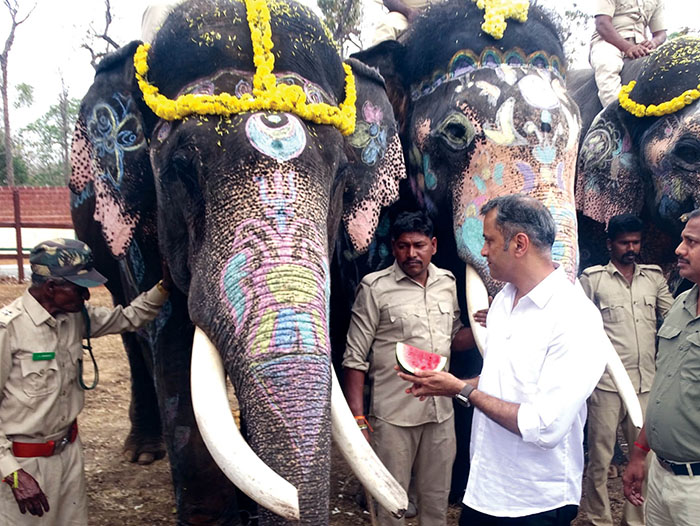
Equipment for surveillance
Visitors have a unique opportunity to witness first-hand the equipment utilised by the Forest Department for managing human-elephant conflicts and operations. Within a designated room, an array of tools is on display, ranging from tranquilliser darts and guns for administering them, to ropes essential for elephant operations.
Additionally, visitors can inspect sophisticated surveillance devices such as camera traps, thermal drones, torches and wireless communication devices utilised in conflict management operations.
This immersive experience will enable visitors to gain a deeper understanding of the intricate procedures and tools employed by the Forest Department. By witnessing these resources up close, visitors can refine their perceptions regarding human-elephant conflict management, appreciating the complexities involved and the efforts undertaken to mitigate such conflicts.
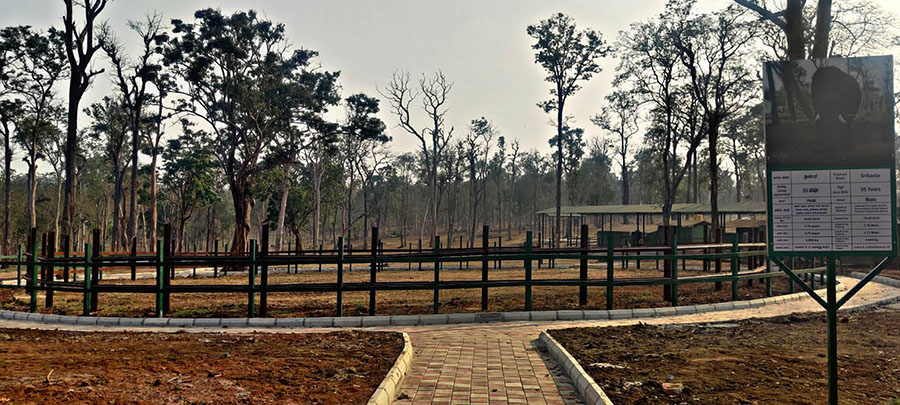
The Information Centre showcases a comprehensive list of distinguished elephants that have had the honour of carrying the 750-kg Golden Howdah during the Dasara festival. Among these pachyderms, Jayamarthanda stands out, having shouldered the Golden Howdah an impressive 45 times.
Other notable elephants who have carried the Howdah are Vijayabahaddur, Nanjunda, Ramaprasad, Motilal Rao, Airavata, Rajendra, Drona (19 times), Balarama (11 times), Arjuna (8+1 times), Abhimanyu (4 times), each adding their majestic presence to the grand procession.
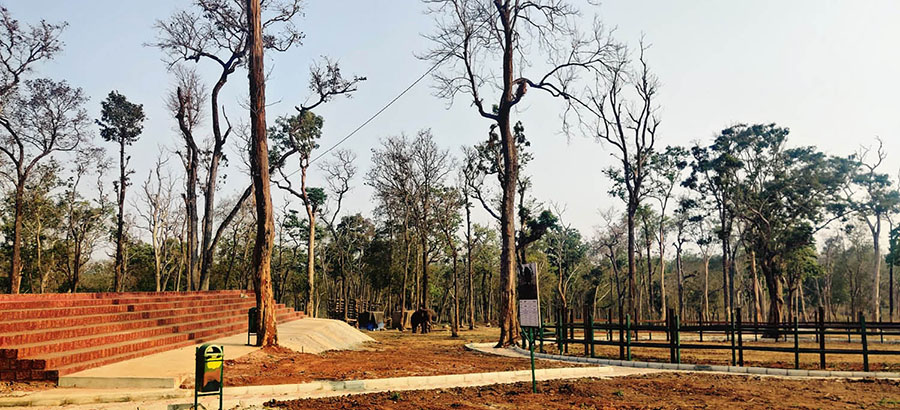
The Mathigodu Elephant Camp has been enhanced to accommodate visitors, with all necessary arrangements for their convenience. Following a formal request to the Government regarding the implementation of an entry fee for tourists visiting the elephant camp, the Government has approved the proposal and granted permission. We have taken the necessary steps to prepare accordingly. —Harshakumar Chikkanaragund,Director (DCF), Nagarahole Tiger Reserve
source: http://www.starofmysore.com / Star of Mysore / Home> Feature Articles> Top Stories / by M T Yogesh Kumar / March 19th, 2024
